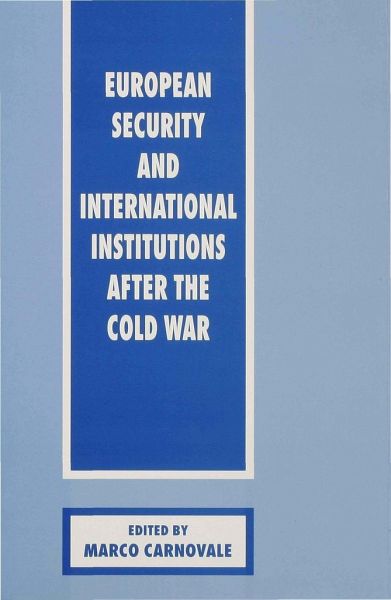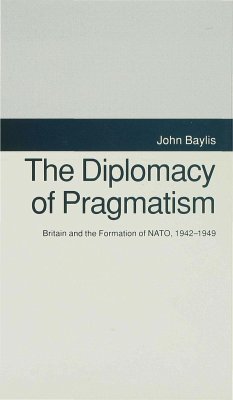
European Security and International Institutions After the Cold War

PAYBACK Punkte
38 °P sammeln!
The end of the Cold War has been accompanied by renewed enthusiasm over the potential of security institutions in Europe. West Europeans, the US and former communist states see them as an indispensable instrument of collective security. Yet, institutions failed to prevent post-communist conflicts, most notably in Yugoslavia. For the future, there is a need for improved coordination among interlocking institutions. This study is both a critical assessment of ongoing institutional changes and an analysis of the agenda for the future.














